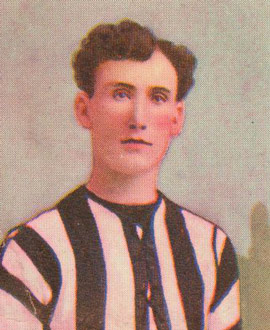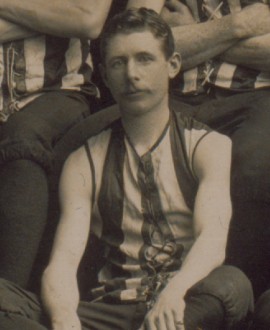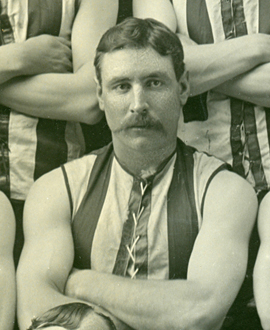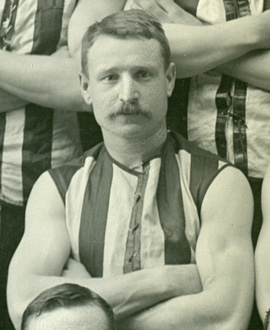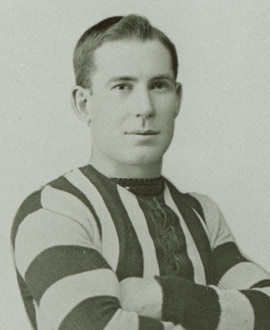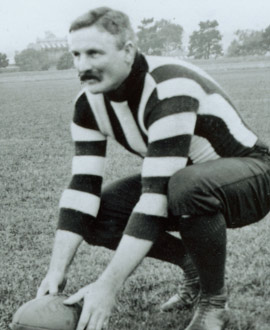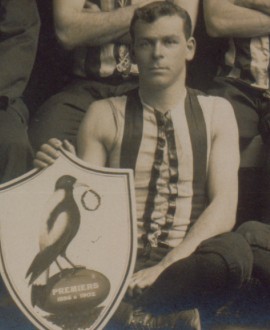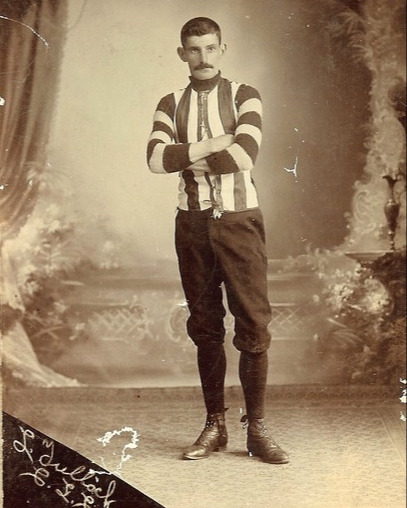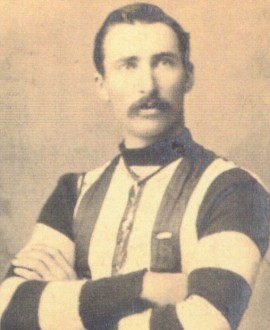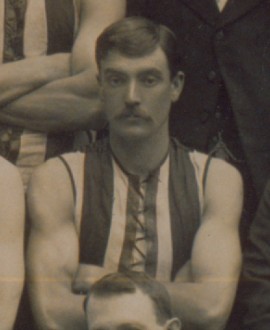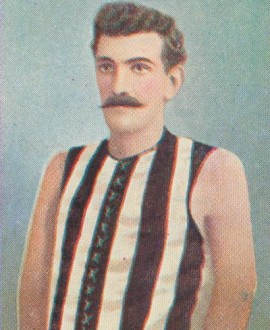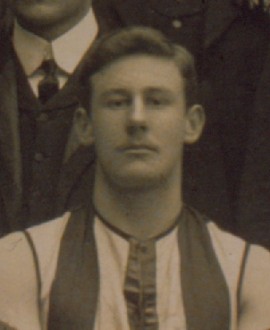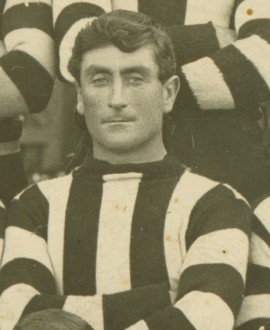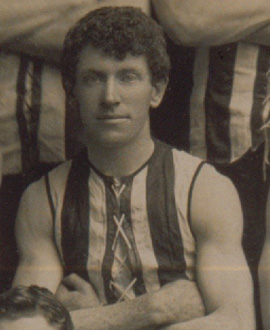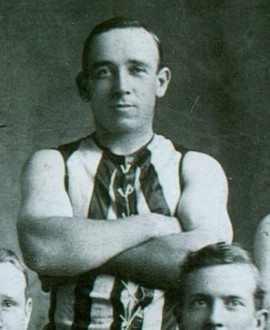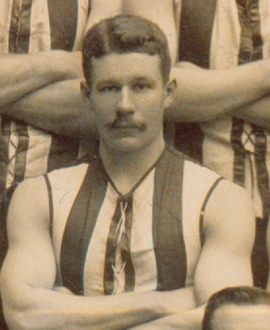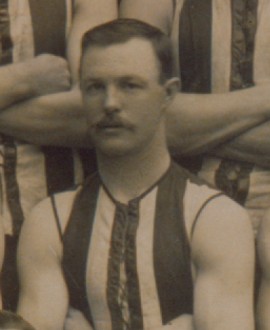Match Report
SUPERIORITY IN GOAL-KICKING. By OLD BOY.
A crowd of over 10,000 people witnessed the match on the Melbourne Cricket-ground on Saturday between Collingwood and Melbourne, and they saw a fine, fast game, in which, though neither side was well-captained, there was some fine football.
All day there was a tendency on the part of both teams to leave their places, and in this respect Melbourne erred more perhaps than their opponents. The Collingwood men, playing a fine, strong game, won because they made the best use of their opportunities, because they played a cooler game forward, and because of their superiority in the ruck. They played with a deal of system in front of the centre, where Rowell was a conspicuous figure in all the sweeping movements which preceded an attack on the Melbourne goal. His marking, running, and kicking were magnificent, and three fine goals are down to his credit.
The Magpies kicked 4 goals and 2 behinds, one of which came from a shot which hit the post, in the first half, and 4 goals 1 behind in the second, so that it can readily be seen that their accuracy in shooting was very marked. Melbourne, on the other hand, although they crossed the goal-line 14 times to their opponents' 11, could only score 4 goals, 10 behinds altogether. They were very erratic forward, and often, when fine ploy by Gardner, Purse, Langley, and company had worked the ball into position, a wild, impossible rush by Wardill nullified all, and the Collingwood bucks were able to drive the ball away.
Wardill did some brilliant things, but, as a rule, he played with such a lack of system and such a degree of recklessness that the value of his work was altogether discounted. As it was, a little coolness, in the Melbourne forward lines might easily have turned the scales.
Devine umpired, and, though I thought he did fairly well on the whole, he made some bad mistakes, and the Melbourne people complained that they were often against them. Devine is only a young umpire, and it was not an easy game to handle, for, with both teams playing hard on a slippery turf, there was plenty for an arbiterto do.
Rowell, as I have said, stood out by his brilliant play, and he was well backed up by Halliwood, A. Leach, Farrell, Fell, and Boyack, who all did good ruck work. Dummett, M'Cormack, Proudfoot, Monahan, and Dow were useful in defence; Pannam, in the first half, had the best of his duel with Bowden, but later on the little Melbourne man went into the game with more vigour, and beat his opponent. Condon, who made his reappearance after a long absence, played a steady, solid game among tho forwards, and kicked twogoals; and E. Lockwood, from Geelong, in addition to kicking two goals, one from a clever left foot screw kick, played well.
Langley, in the first half of the game, did splendidly, and put in a power of work, but he was run out by half-time. Purse, however, was going to the finish; some of his dashes were very fine, and all through he did well. Gardner, on one wing, was too fast and clever for Tame, and towards the end Fell took him in hand, but with but little success. Sowden, on the other wing, was at his best in the second half, and Bowe, Moriarty, and M'Clelland - in the last half (back), Young (centre), Leith (forward und ruck), and Rainey (forward) all played well. Hocking roved cleverly, and Cathie played a very nice, clever game forward, doing a lot of work.
1902 'FOOTBALL.', The Argus (Melbourne, Vic. : 1848 - 1957), 12 May, p. 9, viewed 29 July, 2015, http://nla.gov.au/nla.news-article9074108




